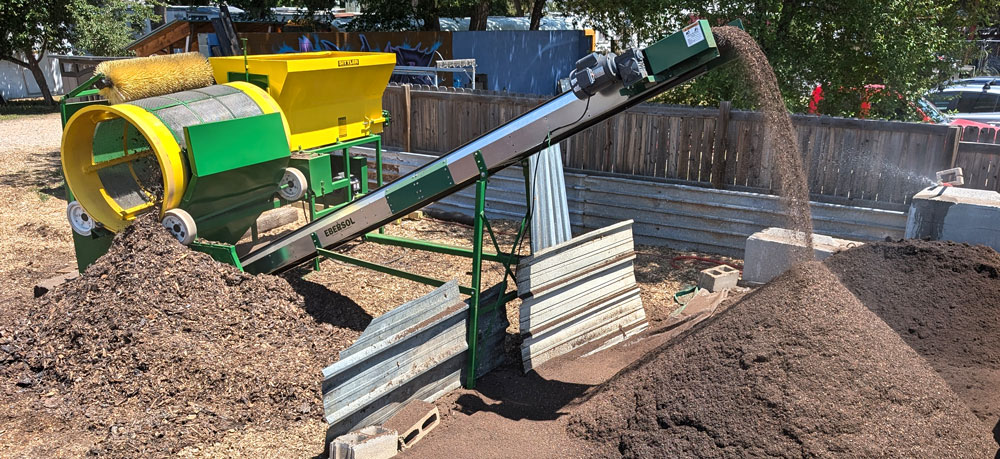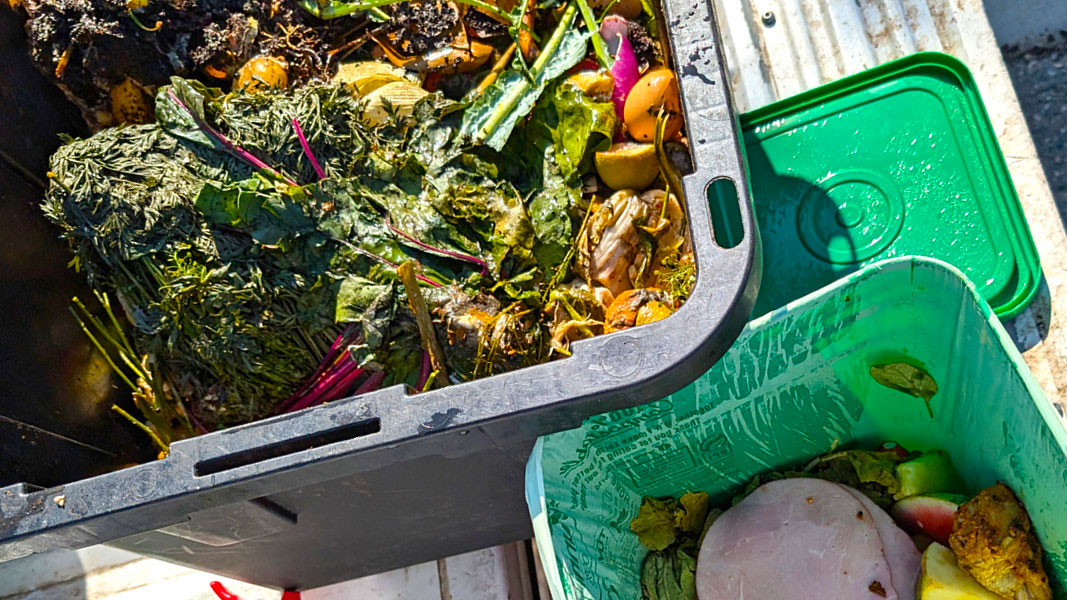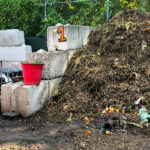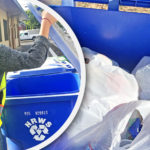Top: The City of Fort Collins is subsidizing costs for up to 600 residents and 20 businesses to receive food scraps collection services. Photos courtesy Compost Queen
The City of Fort Collins (CO), in a strategic move to tackle its climate and zero waste goals, has partnered with local leader Jamie Blanchard-Poling, founder of Compost Queen, to launch a one-year food waste composting pilot program. The initiative, which leverages funding from the city’s Disposable Bag Ordinance, aims to significantly lower the financial barriers to organics recycling for residents and businesses while gathering critical data to inform future waste management strategies.
Food scraps and other organic materials make up over 40% of what currently goes into local landfills. “We are hoping that through this pilot and future activities to chip away at that number,” explains Jacob Castillo, the City’s Chief Sustainability Officer. A substantial financial incentive is being offered for the one-year pilot, with the city subsidizing costs for up to 600 residents and 20 businesses that are not currently Compost Queen customers. The company’s residential curbside service fee of $25/month for every other week collection of food scraps is reduced to as low as $10/month for new customers in the pilot, while the standard monthly fee for using its drop-off service is $5/month, a $15 reduction. Weekly service to new businesses signing up is $40/month for 65-gallon cart collection, a discount of $80/month. Applications started being accepted in late September on a first come, first served basis, with collection starting in mid-October.
This tiered pricing is a key element of the pilot’s data collection phase. By making composting highly accessible, the program seeks to measure adoption rates, contamination levels, and overall processing metrics. Blanchard-Poling sees the pilot as a vital step in the city’s journey toward a sustainable future. “By expanding composting access through this pilot program, we’re taking a major step toward reducing landfill materials, cutting emissions, and advancing Fort Collins’ Road to Zero Waste and Climate Action goals,” she says.
A key to a successful pilot is keeping contamination rates low. Compost Queen uses StopSuite to monitor individual collections and drop site locations. When contaminants are found, drivers flag the contamination, which triggers a custom message to the customer, including a picture of the contaminant. Data on the contaminants — with tags based on type and size, e.g., small, medium and large — are logged as an approximate cubic inch volume for the company’s records. “We are intending to measure the difference in contamination from standard pricing (control) and pilot program pricing (intervention),” explains Blanchard-Poling. “Currently, we have a <1% contamination rate. Contaminants are removed by hand during collection.” With the pilot accepting materials like meat, dairy, bones, and certified compostable packaging, contaminants are most likely to be non-compostable plastics.

Compost Queen’s customers are invited to tour the composting operation and collect a complimentary share of compost. Additional material can be purchased.
The partnership is projected to divert an additional 165 tons of organic material from the landfill over the next year, which is within the capacity of material that Compost Queen can accommodate. “We currently operate a Sustainable Generation single mobile unit,” says Blanchard-Poling. “The covered aerated static pile technology can handle up to 700 tons/year with our site design, so this program will not require that we expand our current capacity.” Incoming food scraps are mixed with wood chips, leaves and farm waste before composting.
The Fort Collins pilot program represents a significant public-private collaboration, using dedicated funding to prove the viability and impact of residential and commercial food waste composting. However, Compost Queen is moving forward without a long-term guarantee. As Blanchard-Poling notes, “The funding available through the Disposable Bag Ordinance is only allocated for the 2025-2026 pilot program at this time, and is not guaranteed to be renewed or dedicated to this program.”













